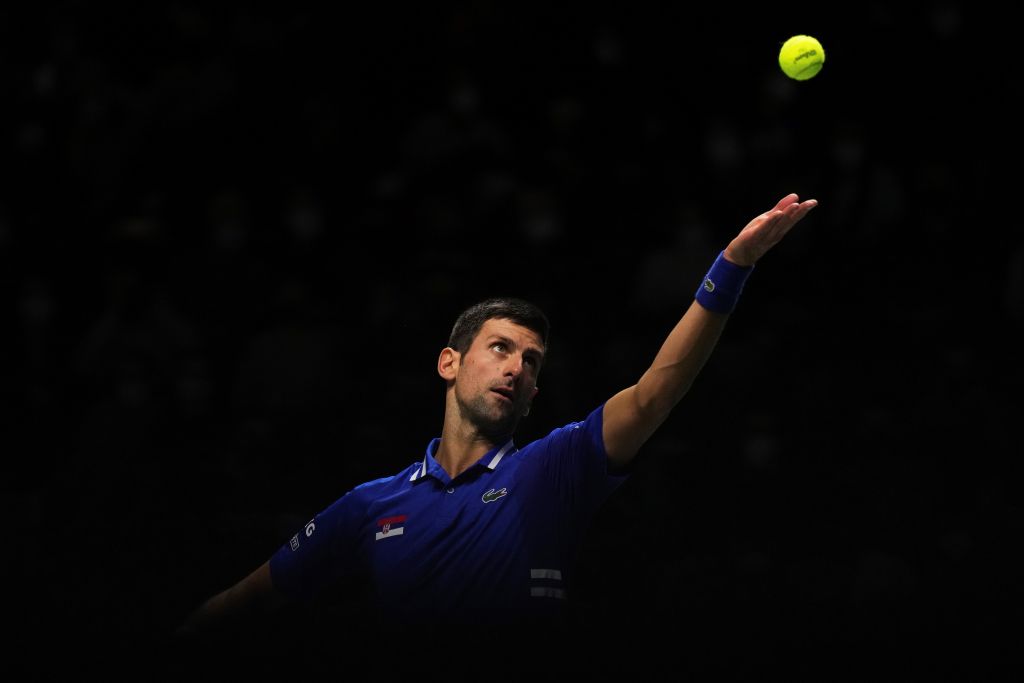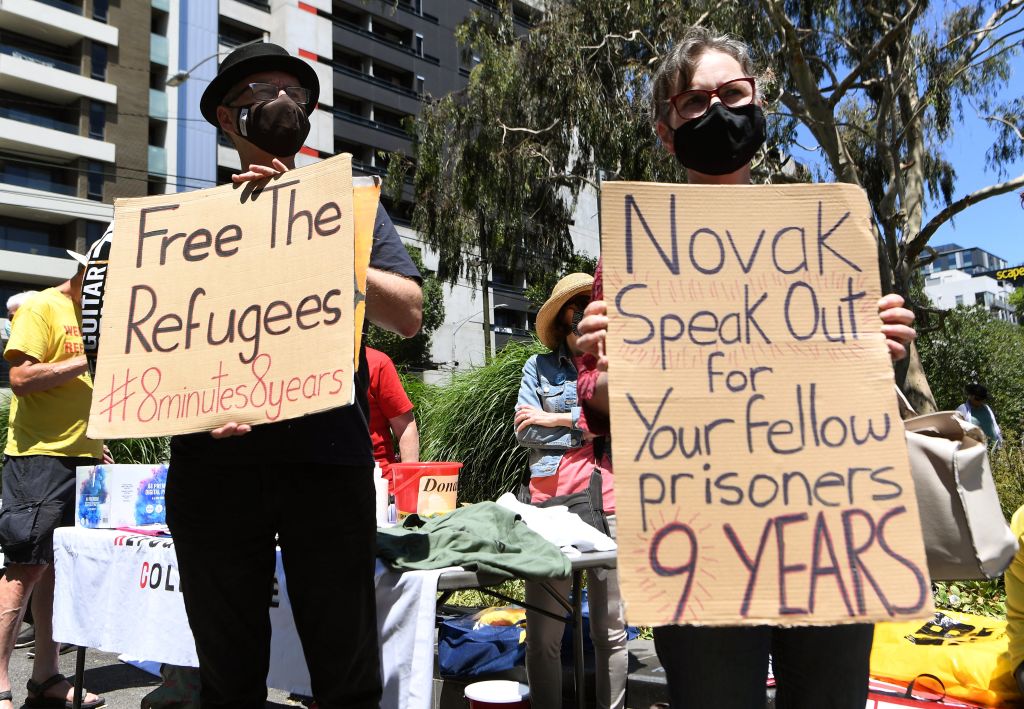The 2022 Australian Open this month was meant to be Australia’s grand re-opening party following nearly two years of COVID-19 border controls that were so tough the country was compared to North Korea.
But that re-opening has been predicated on one thing—COVID-19 vaccinations. Australia cast off most border and social distancing restrictions after hitting benchmarks for vaccination. Australia was late to roll out vaccines, but it now has one of the highest levels vaccination rates in the world, with 92% of people over age 16 fully vaccinated. Proof of vaccination is required for entry into Australia.
This perhaps explains the public fury when Novak Djokovic, the world no. 1 men’s player and a noted vaccine skeptic, announced last week that he’d received an exemption to travel to Melbourne to defend his Australian Open title.

But what happened next caused chaos, and even more anger. After the Serbian tennis star landed on Jan. 5, he was denied entry to Australia and told to leave the country following a 10-hour standoff with officials at Melbourne airport over the legitimacy of his vaccination exemption. But, he stayed to mount a legal challenge. On Monday, an Australian judge reinstated Djokovic’s visa, saying Djokovic hadn’t had enough time to speak with his lawyers before the decision was made.
Despite the high vaccination rate in Australia, anger and anxiety over COVID-19 are running high as the country faces an Omicron-driven explosion in case numbers, with hospital resources and testing facilities stretched.
For two years, strict lockdowns and border policies mostly kept COVID-19 under control; caps on international arrivals prevented tens of thousands of Australians from returning from overseas during the pandemic, earning the country the nickname “Fortress Australia.” By some estimates, Melbourne—host city of the Open—has endured six lockdowns totaling 262 days since March 2020.
Prime Minister Scott Morrison has discouraged state leaders from returning to lockdowns. Australians who have been stuck overseas have begun traveling back home to see family members they haven’t been able to visit for years. Critics, including opposition Labor Party leader Anthony Albanese have decried the government’s policy, calling it “let it rip.”
In response to the outcry over Djokovic, Morrison said that “no one is above the rules,” and appeared to support the visa cancellation. The ball is now in the government’s court. Local media is reporting that Alex Hawke, the minister in charge of immigration, is considering whether to use executive powers to cancel Djokovic’s visa and deport him, despite the court’s decision.
READ MORE: After Australia Banned Its Citizens in India From Coming Home, Many Ask: Who Is Really Australian?
The saga has also drawn attention to Australia’s hardline border policies. Djokovic was detained in the Park Hotel in Melbourne following his initial visa cancellation. Some refugees and asylum seekers have been detained in the same hotel for years—including a 24-year old man who has been there since arriving from Iran at the age of 15. Australia requires anyone without a valid visa to be detained.
The controversy has spilled into the streets of Melbourne, Australia’s second-largest city. Some Djokovic supporters with Serbian flags gathered outside the hotel where he was being held, while others used the opportunity to criticize Australia’s border policies, holding signs with slogan like “Free the refugees.” They urged Djokovic to advocate for others detained in the hotel. Activists expressed anger that Djokovic’s case was resolved so quickly, when many languish in bureaucracy for years.

At least some want to see Djokovic play. Some critics have said the government is using the tennis star as a scapegoat avoid criticism for its recent handling of the pandemic. Police reportedly deployed pepper spray after Serbian-flag waving fans mobbed a car leaving his lawyers’ building on Monday night, believing the player was inside.
Djokovic could still take the court next week, though if he does, he will be the exception to the very rules that are allowing the Australian Open to proceed as normal: All fans and staff must show proof of vaccination to attend.
More Must-Reads from TIME
- Donald Trump Is TIME's 2024 Person of the Year
- Why We Chose Trump as Person of the Year
- Is Intermittent Fasting Good or Bad for You?
- The 100 Must-Read Books of 2024
- The 20 Best Christmas TV Episodes
- Column: If Optimism Feels Ridiculous Now, Try Hope
- The Future of Climate Action Is Trade Policy
- Merle Bombardieri Is Helping People Make the Baby Decision
Write to Amy Gunia at amy.gunia@time.com